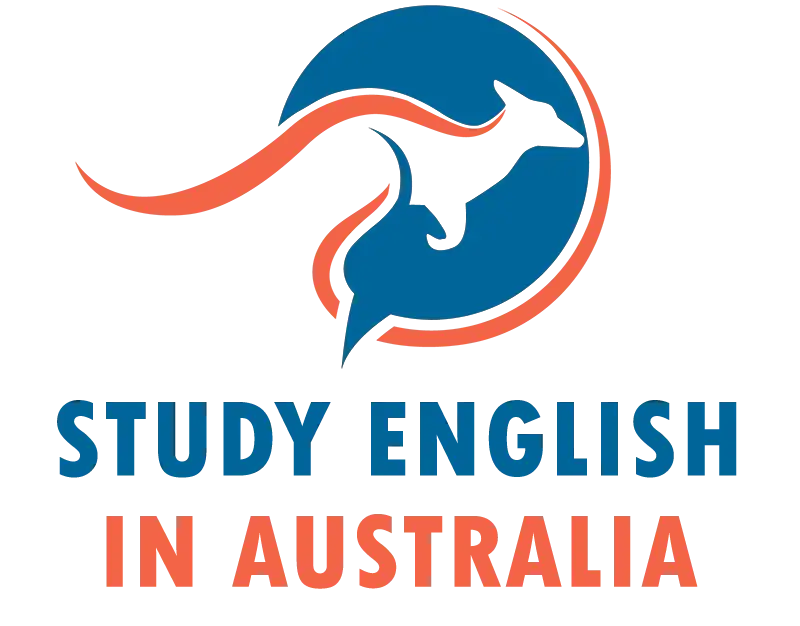Opisyal ng Imigrasyon (ANZSCO 599512)
Ang paglipat sa Australia ay isang pangarap para sa maraming indibidwal na naghahanap ng mas magandang pagkakataon at mataas na kalidad ng buhay. Gayunpaman, ang proseso ng imigrasyon ay maaaring maging kumplikado at nangangailangan ng maingat na pagpaplano at paghahanda. Ang artikulong ito ay nagsisilbing isang komprehensibong gabay sa imigrasyon sa Australia, na nagbibigay ng detalyadong impormasyon sa proseso ng aplikasyon, mga opsyon sa visa, at mga kinakailangan sa pagiging kwalipikado. Isinasaalang-alang mo man ang mahusay na paglipat, pag-sponsor ng pamilya, o pagbabago sa negosyo, tutulungan ka ng artikulong ito na mag-navigate sa proseso ng imigrasyon at gumawa ng matalinong mga desisyon.
Pag-unawa sa Proseso ng Immigration
Ang proseso ng imigrasyon sa Australia ay nagsasangkot ng maraming hakbang at nangangailangan ng maingat na pagsasaalang-alang. Dapat maunawaan ng mga aplikante ang proseso upang matiyak ang maayos at matagumpay na aplikasyon. Narito ang mga pangunahing hakbang na kasangkot sa proseso ng imigrasyon:
- Pananaliksik at Pagpaplano
- Pagsusuri sa Kwalipikasyon
- Pagtitipon ng Mga Kinakailangang Dokumento
- Lodging the Application
- Mga Pagsusuri sa Medikal at Karakter
- Desisyon at Pagbibigay ng Visa
Bago simulan ang proseso ng imigrasyon, mahalagang magsagawa ng masusing pananaliksik tungkol sa mga patakaran sa imigrasyon ng Australia, mga opsyon sa visa, at mga kinakailangan sa pagiging kwalipikado. Tutulungan ka ng pananaliksik na ito na matukoy ang pinakaangkop na landas ng visa para sa iyong mga kalagayan.
Kapag natukoy mo na ang landas ng visa, dapat mong tasahin ang iyong pagiging karapat-dapat batay sa mga partikular na kinakailangan na binalangkas ng gobyerno ng Australia. Ang bawat kategorya ng visa ay may iba't ibang pamantayan na nauugnay sa edad, kasanayan, kwalipikasyon, karanasan sa trabaho, at kasanayan sa wikang Ingles.
Pagkatapos matukoy ang iyong pagiging karapat-dapat, kailangan mong ipunin ang mga kinakailangang dokumento upang suportahan ang iyong aplikasyon sa visa. Maaaring kabilang sa mga dokumentong ito ang mga sertipikong pang-edukasyon, mga talaan ng trabaho, mga pahayag sa pananalapi, mga dokumento ng pagkakakilanlan, at patunay ng kahusayan sa wikang Ingles.
Kapag nakuha mo na ang lahat ng kinakailangang mga dokumento, maaari kang magpatuloy sa pagsumite ng iyong aplikasyon sa visa. Ang aplikasyon ay maaaring isumite online sa pamamagitan ng opisyal na website ng Department of Home Affairs. Napakahalagang magbigay ng tumpak at kumpletong impormasyon upang maiwasan ang mga pagkaantala o pagtanggi.
Bilang bahagi ng proseso ng imigrasyon, kakailanganin mong sumailalim sa mga medikal na eksaminasyon at magbigay ng mga character clearance. Tinitiyak ng mga pagtatasa na ito na natutugunan mo ang mga kinakailangan sa kalusugan at karakter na itinakda ng gobyerno ng Australia.
Pagkatapos isumite ang iyong aplikasyon, ito ay tasahin ng Department of Home Affairs. Ang oras ng pagproseso ay nag-iiba depende sa kategorya ng visa at indibidwal na mga pangyayari. Kapag nakapagdesisyon na, aabisuhan ka sa resulta, at kung matagumpay, bibigyan ka ng visa.
Mga Opsyon sa Visa para sa Immigration sa Australia
Nag-aalok ang Australia ng isang hanay ng mga opsyon sa visa para sa mga indibidwal na naghahanap ng immigrate sa bansa. Ang mga kategorya ng visa ay idinisenyo upang matugunan ang iba't ibang mga pangyayari at mga kinakailangan. Narito ang ilan sa mga pangunahing opsyon sa visa para sa imigrasyon sa Australia:
Mahusay na Paglipat
- Skilled Independent Visa (Subclass 189): Ang visa na ito ay para sa mga skilled worker na hindi inisponsor ng isang employer, estado, o teritoryo. Pinapayagan nito ang mga indibidwal na manirahan at magtrabaho nang permanente saanman sa Australia.
- Skilled Nominated Visa (Subclass 190): Ang visa na ito ay nangangailangan ng nominasyon ng pamahalaan ng estado o teritoryo. Nagbibigay ito ng permanenteng paninirahan sa mga bihasang manggagawa na handang manirahan at magtrabaho sa isang partikular na estado o teritoryo.
- Skilled Work Regional (Provisional) Visa (Subclass 491): Ang visa na ito ay para sa mga skilled worker na nominado ng isang estado o teritoryo na pamahalaan o itinataguyod ng isang karapat-dapat na miyembro ng pamilya na naninirahan sa isang itinalagang rehiyonal na lugar. Nagbibigay ito ng landas patungo sa permanenteng paninirahan pagkatapos ng isang tiyak na panahon.
Sponsorship ng Pamilya
- Partner Visa (Subclasses 820 at 801): Ang visa na ito ay nagpapahintulot sa mga indibidwal na sumali sa kanilang Australian partner o asawa. Nangangailangan ito ng tunay at patuloy na relasyon.
- Parent Visa (Mga Subclass 103, 143, 173, 804, at 864): Ang mga visa na ito ay para sa mga magulang ng mga mamamayan ng Australia, permanenteng residente, o mga karapat-dapat na mamamayan ng New Zealand. Pinapayagan nila ang mga magulang na manirahan sa Australia pansamantala o permanente.
- Child Visa (Subclasses 101, 102, 445, at 802): Ang mga visa na ito ay para sa mga umaasa na bata ng mga mamamayan ng Australia, permanenteng residente, o karapat-dapat na mamamayan ng New Zealand. Pinapayagan nila ang mga bata na manirahan sa Australia pansamantala o permanente.
Programa sa Pagbabago ng Negosyo at Pamumuhunan
- Business Innovation and Investment (Provisional) Visa (Subclass 188): Ang visa na ito ay para sa mga indibidwal na gustong magtatag, bumuo, o mamahala ng bago o umiiral na negosyo sa Australia. Nangangailangan ito ng nominasyon ng pamahalaan ng estado o teritoryo.
- Business Talent (Permanent) Visa (Subclass 132): Ang visa na ito ay para sa mga de-kalibreng may-ari ng negosyo o negosyante na handang mamuhunan sa isangbago o kasalukuyang negosyo sa Australia. Nangangailangan ito ng nominasyon ng pamahalaan ng estado o teritoryo o Austrade.
Nominasyon ng Estado at Teritoryo
- Ang bawat estado at teritoryo sa Australia ay may programang nominasyon nito, na nagpapahintulot sa kanila na magmungkahi ng mga bihasang manggagawa na nakakatugon sa kanilang mga partikular na kinakailangan. Ang mga programang ito ay nakahanay sa mga kategorya ng skilled migration visa at nagbibigay ng mga karagdagang puntos at priyoridad na pagproseso.
Mahusay na Migration
Ang skilled migration ay isa sa mga pinakakaraniwang pathway para sa mga indibidwal na naghahangad na lumipat sa Australia. Ito ay idinisenyo upang matugunan ang mga kakulangan sa kasanayan sa bansa at makaakit ng mataas na kwalipikadong mga propesyonal. Narito ang isang pangkalahatang-ideya ng dalubhasang proseso ng paglipat:
Skills Assessment
Bago mag-aplay para sa isang skilled migration visa, ang mga aplikante ay dapat sumailalim sa pagtatasa ng mga kasanayan ng isang may-katuturang awtoridad sa pagtatasa. Sinusuri ng awtoridad sa pagtatasa ang mga kwalipikasyon, karanasan sa trabaho, at kasanayan ng aplikante para matiyak na natutugunan nila ang mga kinakailangang pamantayan para sa kanilang hinirang na trabaho.
Expression of Interest (EOI)
Pagkatapos makakuha ng positibong pagtatasa ng mga kasanayan, dapat magsumite ang mga aplikante ng Expression of Interest (EOI) sa pamamagitan ng SkillSelect system. Ang EOI ay nagbibigay ng impormasyon tungkol sa mga kasanayan, kwalipikasyon, at karanasan sa trabaho ng aplikante. Ipinapahiwatig din nito ang subclass ng visa kung saan sila interesado.
Pagsusulit sa Mga Punto
Ang mga skilled migration visa ay point-tested, ibig sabihin, ang mga aplikante ay dapat maabot ang isang minimum na limitasyon ng punto upang maging karapat-dapat. Ang mga puntos ay iginagawad batay sa mga salik gaya ng edad, kasanayan sa wikang Ingles, mga kwalipikasyon, karanasan sa trabaho, at iba pang nauugnay na pamantayan.
Imbitasyon na Mag-apply
Kapag naisumite ang isang EOI, maaaring imbitahan ang mga aplikante na mag-aplay para sa isang skilled migration visa kung natutugunan nila ang minimum point requirement at ang kanilang trabaho ay in demand. Pana-panahong ibinibigay ang mga imbitasyon batay sa bilang ng mga magagamit na lugar ng visa at ang mga EOI na may pinakamataas na ranggo.
Application ng Visa
Pagkatapos makatanggap ng isang imbitasyon, ang mga aplikante ay may tinukoy na panahon upang ihain ang kanilang aplikasyon sa visa. Dapat kasama sa aplikasyon ang lahat ng kinakailangang dokumento, gaya ng mga dokumento ng pagkakakilanlan, mga resulta ng pagtatasa ng mga kasanayan, mga resulta ng pagsusulit sa wikang Ingles, at mga clearance sa kalusugan at karakter.
Desisyon at Pagbibigay ng Visa
Tinatasa ng Department of Home Affairs ang aplikasyon ng visa at gumawa ng desisyon. Kung maaprubahan ang aplikasyon, bibigyan ang aplikante ng visa upang manirahan at magtrabaho sa Australia. Maaaring ibigay ang visa para sa pansamantala o permanenteng panahon, depende sa subclass.
Mahalagang tandaan na ang dalubhasang proseso ng paglipat ay maaaring maging mapagkumpitensya, at ang pagtugon sa mga minimum na kinakailangan ay hindi ginagarantiyahan ang isang imbitasyon o pag-apruba ng visa. Ang mga aplikanteng may matataas na puntos at trabaho na mataas ang demand ay may mas magandang pagkakataon na magtagumpay.
Sponsorship ng Pamilya
Ang family sponsorship ay isang pathway para sa mga indibidwal na may malapit na miyembro ng pamilya na naninirahan sa Australia. Ito ay nagpapahintulot sa kanila na sumali sa kanilang mga miyembro ng pamilya at manirahan sa bansa nang permanente o pansamantala. Narito ang mga pangunahing opsyon sa visa para sa sponsorship ng pamilya:
Partner Visa
Ang Partner Visa ay nagpapahintulot sa mga indibidwal na sumali sa kanilang Australian partner o asawa. Ito ay magagamit sa mga indibidwal sa tunay at patuloy na pakikipag-ugnayan sa mga mamamayan ng Australia, mga permanenteng residente, o mga karapat-dapat na mamamayan ng New Zealand. Ang visa ay ibinibigay sa dalawang yugto: pansamantala at permanente.
Parent Visa
Ang mga parent visa ay para sa mga magulang ng mga mamamayan ng Australia, permanenteng residente, o mga karapat-dapat na mamamayan ng New Zealand. Mayroong maraming mga subclass na magagamit, kabilang ang Contributory Parent Visa at ang Aged Parent Visa. Ang mga visa na ito ay nagpapahintulot sa mga magulang na manirahan sa Australia pansamantala o permanente.
Child Visa
Ang mga child visa ay para sa mga dependent na bata ng mga mamamayan ng Australia, permanenteng residente, o mga karapat-dapat na mamamayan ng New Zealand. Ang visa ay nagpapahintulot sa mga bata na manirahan sa Australia pansamantala o permanente, depende sa subclass.
Ang mga family sponsorship visa ay nangangailangan ng sponsorship ng isang kwalipikadong miyembro ng pamilya at nakakatugon sa mga partikular na kinakailangan na nauugnay sa relasyon, edad, at dependency.
Business Innovation at Investment Program
Ang Business Innovation and Investment Program (BIIP) ay idinisenyo upang maakit ang mga may-ari ng negosyo, negosyante, at mamumuhunan sa Australia. Nag-aalok ito ng hanay ng mga opsyon sa visa para sa mga indibidwal na interesado sa pagtatatag, pagbuo, o pamamahala ng negosyo sa bansa. Narito ang mga pangunahing opsyon sa visa sa ilalim ng BIIP:
Business Innovation at Investment (Provisional) Visa (Subclass 188)
Ang visa na ito ay para sa mga indibidwal na gustong magtatag, bumuo, o mamahala ng bago o umiiral na negosyo sa Australia. Nangangailangan ito ng nominasyon ng isang pamahalaan ng estado o teritoryo at ibinibigay para sa isang pansamantalang panahon.
Business Talent (Permanent) Visa (Subclass 132)
Ang visa na ito ay para sa mataas na kalibremga may-ari ng negosyo o mga negosyante na handang mamuhunan sa isang bago o umiiral na negosyo sa Australia. Nangangailangan ito ng nominasyon ng pamahalaan ng estado o teritoryo o Austrade at nagbibigay ng permanenteng paninirahan.
Nag-aalok ang BIIP ng mga pathway para sa mga indibidwal na may iba't ibang background sa negosyo at mga kapasidad sa pamumuhunan. Ang bawat subclass ng visa ay may mga partikular na kinakailangan na nauugnay sa mga pondo sa pamumuhunan, karanasan sa negosyo, at mga plano sa negosyo.
Nominasyon ng Estado at Teritoryo
Ang mga pamahalaan ng estado at teritoryo sa Australia ay may kanilang mga programa sa nominasyon, na nagpapahintulot sa kanila na magmungkahi ng mga bihasang manggagawa na nakakatugon sa kanilang mga partikular na kinakailangan. Ang nominasyon ng estado at teritoryo ay maaaring magbigay ng mga karagdagang puntos at priyoridad na pagproseso para sa mga aplikasyon ng skilled migration visa. Narito ang mga pangunahing aspeto ng nominasyon ng estado at teritoryo:
Mga Pamantayan sa Pagiging Karapat-dapat
Ang bawat estado at teritoryo ay may pamantayan sa pagiging karapat-dapat para sa nominasyon. Maaaring kabilang sa mga pamantayang ito ang mga listahan ng trabaho, mga kinakailangan sa minimum na puntos, karanasan sa trabaho, kasanayan sa wikang Ingles, at pangako sa paninirahan at pagtatrabaho sa estado o teritoryo.
Mga Listahan ng Trabaho
Pinapanatili ng mga pamahalaan ng estado at teritoryo ang kanilang mga listahan ng trabaho, na kilala bilang Mga Listahan ng Iminungkahing Trabaho ng Estado. Tinukoy ng mga listahang ito ang mga trabahong in demand sa loob ng kaukulang estado o teritoryo.
Mga Karagdagang Punto
Ang nominasyon ng estado at teritoryo ay maaaring magbigay ng mga karagdagang puntos patungo sa pagsubok ng mga puntos, na nagpapataas ng pagkakataong makatanggap ng imbitasyon para mag-apply para sa isang skilled migration visa.
Proseso ng Application
Ang proseso ng aplikasyon para sa nominasyon ng estado at teritoryo ay nag-iiba depende sa estado o teritoryo. Karaniwang kinabibilangan ito ng pagsusumite ng pagpapahayag ng interes, pagtugon sa mga kinakailangan sa pagiging kwalipikado, at pagtanggap ng imbitasyong mag-aplay para sa nominasyon.
Ang nominasyon ng estado at teritoryo ay isang mahusay na opsyon para sa mga indibidwal na may mga partikular na kasanayan at kwalipikasyon na kailangan sa isang partikular na estado o teritoryo. Nagbibigay-daan ito sa mga aplikante na palakihin ang kanilang mga pagkakataong makatanggap ng imbitasyon at mapabilis ang oras ng pagproseso ng visa.
Mga Kinakailangan sa Kwalipikasyon para sa Imigrasyon
Ang mga kinakailangan sa pagiging kwalipikado para sa imigrasyon sa Australia ay nag-iiba batay sa kategorya ng visa at indibidwal na mga pangyayari. Narito ang ilang karaniwang kinakailangan sa pagiging kwalipikado na dapat isaalang-alang:
Edad
Karamihan sa mga kategorya ng visa ay may mga paghihigpit sa edad. Para sa skilled migration, ang limitasyon sa edad ay karaniwang 45 taon o mas bata, bagama't may ilang exemption na maaaring malapat.
Mga Kasanayan at Kwalipikasyon
Ang mga skilled migration visa ay nangangailangan ng mga aplikante na magkaroon ng mga kasanayan at kwalipikasyon na nauugnay sa kanilang hinirang na trabaho. Karaniwang kinakailangan ang isang positibong pagtatasa ng mga kasanayan ng isang nauugnay na awtoridad sa pagtasa.
Karanasan sa Trabaho
Ang mga skilled migration visa ay kadalasang nangangailangan ng pinakamababang panahon ng nauugnay na karanasan sa trabaho. Ang karanasan ay dapat nasa hinirang na trabaho o isang malapit na nauugnay na larangan.
Kahusayan sa Wikang Ingles
Dapat ipakita ng mga aplikante ang kahusayan sa wikang Ingles sa pamamagitan ng mga kinikilalang pagsusulit sa wika, gaya ng IELTS o PTE. Ang kinakailangang marka ay nag-iiba depende sa kategorya ng visa at trabaho.
Mga Kinakailangan sa Kalusugan at Character
Ang lahat ng mga aplikante ng visa ay dapat matugunan ang mga kinakailangan sa kalusugan at karakter. Kabilang dito ang pagsailalim sa mga medikal na eksaminasyon at pagbibigay ng police clearance mula sa lahat ng bansang tinitirhan sa loob ng isang partikular na panahon.
Kakayahang Pananalapi
Ang ilang mga kategorya ng visa, gaya ng Business Innovation at Investment visa, ay nangangailangan ng mga indibidwal na ipakita ang kanilang kakayahan sa pananalapi upang magtatag o mamuhunan sa isang negosyo sa Australia.
Mahalagang maingat na suriin ang mga partikular na kinakailangan sa pagiging karapat-dapat para sa napiling kategorya ng visa at humingi ng propesyonal na payo kung kinakailangan. Ang pagtugon sa mga minimum na kinakailangan ay hindi ginagarantiyahan ang isang matagumpay na aplikasyon ng visa, dahil ang iba pang mga salik, gaya ng demand at mga quota ng visa, ay maaari ring makaimpluwensya sa resulta.
Mga Kinakailangan sa Dokumento
Kapag nag-aaplay para sa isang Australian visa, ang mga aplikante ay dapat magbigay ng mga sumusuportang dokumento upang ipakita ang kanilang pagiging karapat-dapat at matugunan ang mga kinakailangan sa visa. Ang mga partikular na kinakailangan sa dokumento ay nag-iiba depende sa kategorya ng visa at indibidwal na mga pangyayari. Narito ang ilang karaniwang mga dokumento na kadalasang kinakailangan para sa mga aplikasyon ng visa:
Mga Dokumento ng Pagkakakilanlan
Kabilang dito ang valid na pasaporte, birth certificate, at national identification card.
Mga Dokumentong Pang-edukasyon
Karaniwang kinakailangan ang mga akademikong transcript, diploma, degree, at kwalipikasyon na nauugnay sa hinirang na trabaho. Mahalagang magbigay ng mga sertipikadong kopya o orihinal na dokumento.
Mga Dokumento ng Karanasan sa Trabaho
Maaaring gamitin ang mga resume, kontrata sa pagtatrabaho, reference letter, at payslip para ipakita ang karanasan sa trabaho sa hinirang na trabaho.
Kahusayan sa Wikang Ingles
Ang mga resulta ng pagsusulit sa wika, gaya ng mga marka ng IELTS o PTE, aykinakailangan upang ipakita ang kahusayan sa wikang Ingles.
Mga Pagpapawalang-bisa sa Kalusugan at Character
Ang mga aplikante ay dapat sumailalim sa mga medikal na eksaminasyon na isinasagawa ng mga panel na doktor na inaprubahan ng Department of Home Affairs. Kinakailangan din ang mga police clearance mula sa lahat ng bansang naninirahan sa isang partikular na panahon.
Mga Pahayag sa Pananalapi
Ang Business Innovation at Investment visa ay maaaring mangailangan ng mga financial statement, business plan, at ebidensya ng investment funds.
Mahalagang magbigay ng tumpak at kumpletong impormasyon at matiyak na ang lahat ng mga dokumento ay totoo at nakakatugon sa mga partikular na kinakailangan na binalangkas ng Department of Home Affairs. Ang pagkabigong ibigay ang mga kinakailangang dokumento ay maaaring magresulta sa pagkaantala o pagtanggi ng visa.
Skills Priority List (SPL)
Ang Skills Priority List (SPL) ay isang komprehensibong listahan ng mga trabahong in demand sa Australia. Tinutukoy nito ang mga trabahong nahaharap sa mga kakulangan sa kasanayan at nagbibigay ng mga pananaw sa mga pangangailangan sa ekonomiya at manggagawa ng bansa. Ang SPL ay ina-update taun-taon ng Jobs and Skills Australia, na isinasaalang-alang ang iba't ibang salik gaya ng mga uso sa industriya, pagsusuri sa labor market, at konsultasyon sa mga stakeholder.
Kinakategorya ng SPL ang mga trabaho batay sa kanilang pangangailangan at priyoridad, na nagsasaad kung nahaharap sila sa kakulangan (S), walang shortage (NS), o may regional shortage (R). Ang listahan ay idinisenyo upang gabayan ang mga desisyon sa patakaran, paglalaan ng visa, at mga programa sa nominasyon ng estado at teritoryo.
Ang SPL ay isang mahalagang mapagkukunan para sa mga indibidwal na nagpaplanong lumipat sa Australia. Tinutulungan sila nitong matukoy ang mga trabaho na may mas mataas na pagkakataong makatanggap ng mga imbitasyon at pag-apruba ng visa. Sa pamamagitan ng pagpili ng mga trabaho sa SPL, maaaring iayon ng mga aplikante ang kanilang mga kasanayan at kwalipikasyon sa mga pangangailangan ng workforce ng Australia, na nagpapataas ng kanilang mga pagkakataong magtagumpay.
Konklusyon
Ang imigrasyon sa Australia ay nag-aalok ng maraming pagkakataon para sa mga indibidwal na naghahanap ng mas magandang kalidad ng buhay, pag-unlad ng karera, at personal na paglago. Gayunpaman, ang proseso ng imigrasyon ay maaaring maging kumplikado at nangangailangan ng maingat na pagpaplano at paghahanda. Ang komprehensibong gabay na ito ay nagbigay ng detalyadong impormasyon sa proseso ng imigrasyon, mga opsyon sa visa, mga kinakailangan sa pagiging kwalipikado, at mga kinakailangan sa dokumento.
Sa pamamagitan ng pag-unawa sa proseso ng imigrasyon at pagsasagawa ng masusing pagsasaliksik, ang mga indibidwal ay makakagawa ng matalinong mga desisyon at madaragdagan ang kanilang mga pagkakataon ng matagumpay na aplikasyon ng visa. Ang paghingi ng propesyonal na payo mula sa mga rehistradong ahente ng migration o abugado sa imigrasyon ay lubos na inirerekomenda upang i-navigate ang mga kumplikado ng sistema ng imigrasyon.
Tandaan na ang mga patakaran at kinakailangan sa imigrasyon ay maaaring magbago, at mahalagang manatiling updated sa pinakabagong impormasyon mula sa Department of Home Affairs at mga nauugnay na pamahalaan ng estado at teritoryo.
Sa wastong pagpaplano, paghahanda, at patnubay, matutupad ng mga indibidwal ang kanilang pangarap na lumipat sa Australia at tamasahin ang maraming pagkakataon at benepisyo na iniaalok ng bansa.
599512: Immigration Officer
Current Demand / Future Demand
No invitations were given
Possible Visa Options
| Visa Type | Eligibility | Caveats / Mandatory Assessment | Legislative Instrument | MLTSSL | STSOL | ROL |
|---|---|---|---|---|---|---|
| 189Skilled Independent | LIN 19/051 | |||||
| 190Skilled Nominated | LIN 19/051 | |||||
| 491Skilled Work Regional | LIN 19/051 | |||||
| 491FFamily Sponsored | LIN 19/051 | |||||
| 485Stream: Graduate Work | LIN 19/051 | |||||
| 482TSS: Medium & Short term | LIN 19/048 | |||||
| DAMALabour Agreement | ||||||
| 186ENS: TRT & DE | LIN 19/049 | |||||
| 187RSMS: TRT | LIN 19/047 | |||||
| 494SESR: Employer Sponsored | LIN 19/219 LIN 19/260 | |||||
| 407Training: Enhance Skills | LIN 19/050 |
State/Territory Eligibility Summary Table
- Occupation is IN the State/Territory Skilled Occupation List and MAY be eligible if you meet the specific State/Territory nomination requirements
- Occupation is IN the Skilled List (MLTSSL, STSOL or ROL list) and MAY be eligible if you meet the State/Territory nomination requirements
- Occupation MAY NOT be eligible
- Stream NOT applicable to the visa Subclass
- Migration Program currently CLOSED
State/Territory Eligibility Details
Australian Capital Territory
ACT Critical Skills List
599512: Immigration Officer
| Subclass 190 | Subclass 491 | Nomination places available per month |
|---|---|---|
General Requirements
Candidates must register their interest in ACT nomination by completing a score-based Canberra Matrix
Candidates may be nominated under four streams:
- Canberra Residents
- Overseas Applicants
- Doctorate Streamlined nomination
- Significant economic benefit
Requirements for Canberra Residents
Candidates applying for Subclass 190 nomination must:
- Have an occupation on the ACT Critical Skills List; or be the primary holder of a 457/482 visa sponsored by an ACT employer for the last 6 months; or be the majority owner of an eligible ACT business claiming Matrix points in the Small Business Owner category.
- Have lived in Canberra for the last 6 months and continue until invitation.
- Have worked in Canberra for at least 26 weeks (overall hourly and/or earnings requirements apply).
- Have ‘Proficient’ or ‘Superior’ English (ANZSCO 351311 Chef, and ANZSCO skill level 3 to 5 are exempt).
Candidates applying for Subclass 491 nomination must:
- Have an occupation on the ACT Critical Skills List; or be the primary holder of a 457/482 visa sponsored by an ACT employer for the last 3 months; or be the majority owner of an eligible ACT business claiming Matrix points in the Small Business Owner category.
- Have lived in Canberra for the last 3 months and continue until invitation.
- Have worked in Canberra for at least 13 weeks (overall hourly and/or earnings requirements apply).
- Have ‘Competent’ English.
Requirements for Overseas Applicants
Candidates applying for Subclass 190 nomination must:
- Have an occupation on the ACT Critical Skills List.
- Have at least three years full time, post graduate relevant work experience in your nominated occupation in the last five years.
- Have researched the ACT labour market and be satisfied with being employable in Canberra.
- Have ‘Proficient’ or ‘Superior’ English (ANZSCO 351311 Chef, and ANZSCO skill level 3 to 5 are exempt).
- Be living overseas and have not lived in Australia for the last 12 months.
- Have access to sufficient settlement funds.
Candidates applying for Subclass 491 nomination must:
- Have an occupation on the ACT Critical Skills List.
- Have at least one year full time, post graduate relevant work experience in your nominated occupation in the last five years.
- Have researched the ACT labour market and be satisfied with being employable in Canberra.
- Have ‘Competent’ English.
- Be living overseas and have not lived in Australia for the last 12 months.
- Have access to sufficient settlement funds.
Doctorate Streamlined nomination
Candidates must:
- Have lived in Canberra for the last 12 months (interstate and overseas residents may be eligible if they completed their doctoral degree from an ACT within the last two years).
- Have completed a professional or research doctoral degree at an ACT university.
Significant economic benefit
- Invitation can ONLY be initiated by the ACT government.
New South Wales
Subclass 190 Basic Eligibility criteria
- Have an occupation on the Department’s relevant Skilled List (MLTSSL, STSOL or ROL).
- Candidates must be currently residing in NSW or Offshore and have continuously done so for a minimum of 6 months.
- Have submitted an EOI seeking Subclass 190 nomination for NSW only
NSW Target Sectors
To more effectively respond to changing skills shortages across the state, NSW is transitioning from the publication of an eligible ANZSCO skilled list to adopting a sector-focused approach.
The sectors identified as experiencing critical skills shortages in NSW include:
- Health
- Education
- Information and Communication Technology (ICT)
- Infrastructure
- Agriculture
Important: Although NSW prioritizes target sectors, high-ranking EOIs submitted in non-priority sectors may also be considered. However, it's important to understand that the chances of receiving an invitation are exceptionally low due to high demand and limited spots.
Subclass 491 Basic Eligibility criteria
Candidates may be nominated under two pathways:
- Pathway 1 – Apply directly to an RDA office (see participating regions below).
- Stream A - Established work history with a regional NSW-based employer
- Stream B - My skills are required in regional NSW
- Pathway 2 – Be invited by Investment NSW.
Requirements for Pathway 1 - Stream A
- Candidates must have an eligible occupation.
- Candidates must be currently living and working in a designated regional area of NSW and have continuously done so for the past 12 months.
- The qualifying employment must be in the nominated (or closely related) occupation, with the same employer, deemed skilled by NSW and paid a minimum of $53,900 (pro-rated if under 38 hours/week).
Requirements for Pathway 1 - Stream B
- Candidates must have an eligible occupation within an ANZSCO on the NSW Skills Lists (Pathway 1 - Stream B).
- Candidates must be currently residing in NSW or Offshore and have continuously done so for a minimum of 3 months.
Requirements for Pathway 2
- Candidates must have an eligible occupation within an ANZSCO on the NSW Skills Lists (Pathway 2)
- Candidates must be currently residing in NSW or Offshore and have continuously done so for a minimum of 3 months.
Participating regions for Pathway 1 are:
- RDA Central Coast
- RDA Central West
- RDA Far South Coast
- RDA Far West
- RDA Hunter
- RDA Illawarra
- RDA Mid North Coast
- RDA Murray
- RDA Northern Inland
- RDA Northern Rivers
- RDA Orana
- RDA Riverina
- RDA Southern Inland
- RDA Sydney
Northern Territory
General Requirements
Candidates may be nominated under three streams/pathways:
Requirements for NT Residents
Candidates must:
- Have been residing in the NT for at least 12 consecutive months, with no migrating dependants residing in another part of Australia.
- Demonstrate full-time employment in the NT in an eligible occupation (i.e., nominated occupation or related to it) for at least 6 consecutive months immediately before applying (the employment must be available for at least 12 months). If the occupation is not “an eligible occupation”, a candidate may exceptionally still be considered if employed in health, aged or disabled care, education (incl. childcare), and hospitality.
- Demonstrate that the position is based in the NT (serviced office spaced or hot desking generally not accepted) and the employer has been training for at least 12 months in the NT.
Requirements for Offshore Applicants
Candidates must:
- Have post-qualification work experience of at least 1 year in the nominated occupation (additional work experience may be required under the priority occupations stream).
- Demonstrate a genuine commitment to live and work in NT.
- Provide evidence of financial capacity.
- Meet the criteria relevant to one of the 3 streams:
- Have an occupation on the Northern Territory Offshore Migration Occupation List (NTOMOL).
- Meet any additional work experience required as specified on the NTOMOL. Please, see below:
- Have an eligible family member in the NT who is a usual resident and has lived in the NT for at least 12 months. This person must be an Australian citizen, a permanent resident, or an Eligible New Zealand citizen or hold an eligible visa (Subclass 491, 494, 489 or a bridging visa associated with an application for a Subclass 887 or 191 visa). The eligible relative must confirm their willingness to provide settlement support.
- Demonstrate genuine and sustained efforts to obtain employment from an NT employer.
- Have a job offer in the nominated occupation in an NT business that has been actively operating in the NT for at least 12 months.
Priority occupation stream
NT Offshore Migration Occupations List (NTOMOL)
599512: Immigration Officer
| Subclass 190 | Subclass 491 | Comments |
|---|---|---|
NT Family stream
NT Job Offer stream
NT Graduates
Candidates must:
- Have completed two years of study in the NT.
- Have completed one or more qualifications at an NT-based institution in a single tertiary course or a set of nested tertiary courses.
- Demonstrate genuine and sustained efforts to obtain employment from an NT employer in the nominated occupation.
Candidates who:
- hold a Graduate (Subclass 485) visa that expires after 1 July 2024 or who are eligible to apply for a Graduate (Subclass 485) visa, are unlikely to be offered a nomination in this program year.
- are working in their nominated occupations or in critical sectors (healthcare, education and hospitality) would be prioritised.
Queensland
2023-24 Queensland Skilled Migration Program
599512: Immigration Officer
| Type | Subclass 190 | Subclass 491 | Minimum post-qualification work experience requirement |
|---|---|---|---|
| Offshore candidates (QSOL list) | |||
| Living in QLD (Skilled List) |
General Requirements
Candidates may be nominated under four streams:
- Skilled workers living in QLD
- Skilled workers living Offshore
- Graduates of a QLD University
- Small Business Owners in regional QLD
Requirements for 'Skilled workers living in QLD'
Candidates must:
- Have a points-test result of 75 or higher for Subclass 190 (except for Trades occupations, which require 70 or higher) or, 65 or higher for Subclass 491.
- Have an occupation on the Department’s relevant Skilled List (MLTSSL, STSOL or ROL).
- Have Competent English or higher (6.0 on IELTS / 50 on PTE).
- Have been living in QLD (regional for Subclass 491), undertaking full-time post-qualification employment (30 hrs/week) in the nominated occupation for ‘3 months immediately before EOI lodgement’ for Subclass 190 or, ‘at the time of your EOI lodgement’ for Subclass 491.
- Provide evidence of ongoing full-time employment in QLD for a further 12 months for Subclass 190 or, 6 months for Subclass 491 (virtual office is not accepted).
Requirements for 'Skilled workers living Offshore'
Candidates must:
- Have a points-test result of 75 or higher for Subclass 190 (except for Trades occupations, which require 70 or higher) or, 65 or higher for Subclass 491.
- Have an eligible occupation on the ‘Queensland Skilled Occupation List’ (QSOL).
- Have Competent English or higher (6.0 on IELTS / 50 on PTE).
- Provide evidence of the required years of post-study work experience as per the QSOL and be employed in the nominated occupation when invited.
Skilled workers living Offshore
Requirements for 'Graduates of a QLD university'
Candidates must:
- Have a points-test result of 75 or higher for Subclass 190 or, 65 or higher for Subclass 491.
- Have an occupation on the Department’s relevant Skilled List (MLTSSL, STSOL or ROL).
- Be living in Queensland (regional for Subclass 491).
- Have Competent English or higher (6.0 on IELTS / 50 PTE).
- Have completed 100% of their studies in Queensland and graduated in the last two years.
- Meet the additional criteria for their qualification level as indicated below.
PhD or Doctorate Graduates (190 and 491) must:
- Have had a positive decision on their thesis.
Master’s Graduates in STEM or Agriculture fields (190 and 491) must:
- Be employed full-time (30 hrs/week) in the nominated occupation (or ANZSCO Skill Level 1).
Master’s Graduates - not in STEM or Agriculture fields (190 and 491) must:
- Be employed full-time (30 hrs/week) in the nominated occupation (or ANZSCO Skill Level 1).
- Have a grade point average of 6.0 or higher for Subclass 190 or 5.0 for Subclass 491.
Bachelor’s Graduates (190 and 491) must:
- Be employed full-time (30 hrs/week) in the nominated occupation (or ANZSCO Skill Level 1).
- Have a grade point average of 6.0 or higher for Subclass 190 or 5.0 for Subclass 491.
Requirements for 'Small business owners in regional QLD'
Candidates must:
- Have an occupation on the Department’s relevant Skilled List (MLTSSL, STSOL or ROL).
- Have full-time work rights and not currently be studying.
- Be living in regional Queensland.
- Be working for the business full-time (30 hrs/week)
- Have 100% ownership of the business.
- Own and operate a business in regional Queensland.
- Meet the criteria for Pathway 1 or Pathway 2 as indicated below.
Pathway 1
- Have purchased an existing business for a minimum of $100,000.
- The business must be a pre-existing business (operating for a minimum of 2 years) trading for a minimum of six months prior to lodging an Expression of Interest (EOI).
- The business must employ at least one Australian resident (20 hrs/week) or two employees working 10 hrs/week.
Pathway 2
- Have started a business and have continuously run that business for a minimum of two years. Must be generating a profit and have a turnover of $200,000 in the 12 months prior to application.
Small Business Owners in regional QLD
South Australia
599512: Immigration Officer
2023-24 South Australia's Skilled Occupation List
| Stream | Subclass 190 | Subclass 491 | Minimum Points |
|---|---|---|---|
| Graduates | |||
| Working in South Australia | |||
| Highly Skilled & Talented | |||
| Offshore |
General Requirements
To be selected to apply for State nomination, most candidates must complete and submit a Registration of Interest (ROI) for South Australia via their Migration portal.
Candidates may be nominated under four streams:
Requirements for 'South Australian Graduates'
Candidates must:
- Have an occupation under the Graduate stream on South Australia’s Skilled Occupation list.
- Currently live and work in South Australia.
- Have at least Competent English.
- Have completed their qualification at a South Australian education. The course must be CRICOS registered with a minimum of 46 CRICOS weeks and meet the minimum qualification level listed for the occupation on South Australia’s Skilled Occupation list. At least 50% of the qualification must have been completed in SA, and the candidate must have resided in the State for at least 1 year during their studies.
- Have been residing in South Australia for at least the last 12 months.
- Have been working for the last 6 months and be currently employed (at least 30 hr/week). Employment must be related to the nominated occupation.
Requirements for 'Working in South Australia'
Candidates must:
- Have an occupation under the Working in SA stream on South Australia’s Skilled Occupation list.
- Currently live and work in South Australia.
- Have at least Competent English.
- Have been residing in South Australia for at least the last 12 months.
- Have been working for the last 6 months and be currently employed (at least 30 hr/week). Employment must be related to the nominated occupation.
Requirements for 'Highly Skilled and Talented'
Candidates must:
- Currently live and work in South Australia, interstate or overseas.
- Have at least Competent English.
- Meet employment requirements if working or have been offered a position in South Australia. Employer requirements include an existing business of at least 12 months, located and operating in SA for the past 12 months and with an annual turnover of at least $4 million unless an exception applies.
- Meet additional requirements if:
- Candidate with Hi-Tech or Digital industry experience, including at least 2 years of experience in one of South Australia’s critical technology professions.
- Candidate with Defence or Space industry experience, including having already commenced employment in a relevant organisation and currently working full-time in South Australia. Overseas candidates must demonstrate relevant experience and intend to relocate to South Australia.
Requirements for 'Offshore'
Candidates must:
- Currently residing offshore.
Tasmania
599512: Immigration Officer
| Occupation Lists | Eligibility | Notes & caveats |
|---|---|---|
| Critical Roles List | ||
| Tasmanian Onshore Skilled Occupation List (TOSOL) | ||
| Overseas Skilled Occupation Profiles (OSOP) |
Lists
- Critical Roles List: An occupation included in the 'Critical Roles List' will be prioritised in the Migration Tasmania Gateway.
- Tasmanian Onshore Skilled Occupation List (TOSOL): An occupation included in the TOSOL is eligible for subclass 190 nomination after 6 months employment in a closely related role. Occupations that are not on the TOSOL are eligible for subclass 190 nomination in the 'Tasmanian Skilled Employment' pathway after 15 months of related employment.
- Overseas Skilled Occupation Profiles (OSOP): An occupation included in the OSOP list is eligible for the 'Overseas Applicant (OSOP) – Invitation Only' pathway (subclass 491 only).
Pathway Eligibility
599512: Immigration Officer
| Pathway | Subclass 190 | Subclass 491 |
|---|---|---|
| Tasmanian Skilled Employment | ||
| Tasmanian Skilled Graduate | ||
| Tasmanian Established Resident | ||
| Tasmanian Business Operator | ||
| Overseas Applicant (Job Offer) | ||
| Overseas Applicant (OSOP) – Invitation Only |
- Occupation is IN the state occupation list and MAY be eligible if you meet the specific state nomination requirements
- Occupation is IN the Skilled List and MAY be eligible if you meet the state nomination requirements
- Occupation MAY NOT be eligible
- Stream NOT applicable to the visa Subclass
Victoria
Victoria’s 2023-24 Skilled Visa Nomination Program
To be selected to apply for Victorian skilled visa nomination, candidates must complete and submit a Registration of Interest (ROI) for Victorian State Visa Nomination.
All occupations included in the Skilled List(MLTSSL, STSOL or ROL list) are eligible for nomination if the candidate meets the Victoria nomination criteria.
The following occupation groups are prioritised:
- Health
- Social services
- Information Communication Technology (ICT)
- Early childhood, primary, secondary, and special education teachers
- Advanced manufacturing
- Infrastructure
- Renewable energy
- Hospitality and tourism (491 visa only)
General Requirements for 'Skilled Nominated visa (subclass 190)'
Candidates applying for Subclass 190 nomination must:
- Have an occupation on the Skilled List (MLTSSL, STSOL or ROL list).
- Have had their Registration of Interest (ROI) selected.
- If onshore, be living in Victoria at the time of nomination.
- If onshore and claiming earnings from skilled employment in the ROI, the employer must be physically located in Victoria.
- Be committed to living in Victoria.
General Requirements for 'Skilled Work Regional (Provisional) visa (subclass 491)'
Onshore Candidates must:
- Have an occupation on the Skilled List (MLTSSL, STSOL or ROL list).
- Have had their Registration of Interest (ROI) selected.
- Be living and working in skilled employment in regional Victoria at the time of nomination. Candidates who are not working, or working in non-skilled employment, are not eligible to apply for nomination.
- Be committed to living in regional Victoria.
Offshore Candidates must:
- Have an occupation on the Skilled List (MLTSSL, STSOL or ROL list). Offshore candidates for 491 visas with skills in healthcare, social services and education will be prioritised.
- Have had their Registration of Interest (ROI) selected.
- Be committed to living in regional Victoria.
Western Australia
Western Australia occupation lists (WASMOL Schedule 1 & 2, and Graduate)
599512: Immigration Officer
| Stream Type | Status | Subclass 190 | Subclass 491 | Minimum Points | Priority Occupation | Comments |
|---|---|---|---|---|---|---|
| Not Available |
General Requirements
Candidates may be nominated under two streams:
Applicants for the General stream must satisfy Schedule 1 or Schedule 2 criteria, depending on their occupation.
Schedule 1 criteria, candidates must have:
- An occupation on the WASMOL – Schedule 1 (Health & Medical Occupations).
- Competent English.
- At least one year of relevant Australian or overseas work experience.
- At least 6-months full-time contract of employment in Western Australia (only applicable for Subclass 190 visa applicants, and except for those invited through a WA building and construction industry sector occupation).
Schedule 2 criteria, candidates must have:
- An occupation on the WASMOL – Schedule 2.
- Competent English.
- At least 6-months full-time contract of employment in Western Australia (only applicable for Subclass 190 visa applicants, and except for those invited through a WA building and construction industry sector occupation).
WA Graduates must have:
- An occupation on the GOL.
- Studied at an accredited Western Australian educational institution, full-time and face-to-face, for at least two years.
- Completed a Cert. III or higher qualification in a Western Australian university, higher education provider, TAFE, registered training provider or English language provider.
- Competent English.
Migration Program Planning Levels 2023-24
State & Territory Visa Allocations 2023-24State / Territory Nominated Subclass 190 Work Regional Subclass 491 Business Innovation & Investment Program
(BIIP) ACT 600 600 0 NSW 2,650 1,500 0 NT 250 400 0 QLD 900 650 0 SA 1,100 1,200 0 TAS 600 600 0 VIC 2,700 600 0 WA 1,500 850 0 TOTAL 10,300 6,400 0
Skill streamVisa Category Allocations 2022-23 Allocations 2023-24 Employer Sponsored 35,000 36,825 Skilled Independent 32,100 30,375 Regional 34,000 32,300 State/Territory Nominated 31,000 30,400 Business Innovation & Investment 5,000 1,900 Global Talent (Independent) 5,000 5,000 Distinguished Talent 300 300 Total Skill stream 142,400 137,100
Family streamVisa Category Allocations 2022-23 Allocations 2023-24 Partner 40,500 40,500 Parent 8,500 8,500 Child 3,000 3,000 Other Family 500 500 Total Family stream 52,500 52,500 Special Eligibility 100 400 TOTAL Migration Program 195,000 190,000
| State / Territory | Nominated Subclass 190 | Work Regional Subclass 491 | Business Innovation & Investment Program (BIIP) |
|---|---|---|---|
| ACT | 600 | 600 | 0 |
| NSW | 2,650 | 1,500 | 0 |
| NT | 250 | 400 | 0 |
| QLD | 900 | 650 | 0 |
| SA | 1,100 | 1,200 | 0 |
| TAS | 600 | 600 | 0 |
| VIC | 2,700 | 600 | 0 |
| WA | 1,500 | 850 | 0 |
| TOTAL | 10,300 | 6,400 | 0 |
| Visa Category | Allocations 2022-23 | Allocations 2023-24 |
|---|---|---|
| Employer Sponsored | 35,000 | 36,825 |
| Skilled Independent | 32,100 | 30,375 |
| Regional | 34,000 | 32,300 |
| State/Territory Nominated | 31,000 | 30,400 |
| Business Innovation & Investment | 5,000 | 1,900 |
| Global Talent (Independent) | 5,000 | 5,000 |
| Distinguished Talent | 300 | 300 |
| Total Skill stream | 142,400 | 137,100 |
Family streamVisa Category Allocations 2022-23 Allocations 2023-24 Partner 40,500 40,500 Parent 8,500 8,500 Child 3,000 3,000 Other Family 500 500 Total Family stream 52,500 52,500 Special Eligibility 100 400 TOTAL Migration Program 195,000 190,000
| Visa Category | Allocations 2022-23 | Allocations 2023-24 |
|---|---|---|
| Partner | 40,500 | 40,500 |
| Parent | 8,500 | 8,500 |
| Child | 3,000 | 3,000 |
| Other Family | 500 | 500 |
| Total Family stream | 52,500 | 52,500 |
| Special Eligibility | 100 | 400 |
| TOTAL Migration Program | 195,000 | 190,000 |
ANZSCO version 1.3, cat. no. 1220.0
Sub-Major Group: 59 - Other Clerical and Administrative Workers
Minor Group: 599 - Miscellaneous Clerical and Administrative Workers
Unit Group: 5995 - Inspectors and Regulatory Officers
Description
Examines and assesses the entry of people from other countries, administers visas and residency applications according to immigration legislation, rules and policies, and, where necessary, uses legal powers to detain and remove illegal entrants.
Alternative Titles
There are no Alternative Titles for this occupation
Specialisations
There are no Specialisation Titles for this occupation
Alternative titles are any commonly used alternative title (or titles) for the occupation. These alternative titles have the same meaning as the principal title but may be less commonly used.
Specialisation titles are any commonly used titles which refer to a subset of jobs belonging to the occupation designated in the principal title. These jobs involve the performance of specialised tasks rather than the broader range of tasks usually performed in the occupation.
2023 Skills Priority List
The Skills Priority List (SPL) provides a detailed view of occupations in shortage in Australian and by each state and territory. The SPL is released annually by Jobs and Skills Australia
Occupation Ratings: S Shortage; NS No Shortage; R Regional Shortage
National Future Demand: Below economy average; At economy average; Above economy average
599512: Immigration Officer
| National Future Demand | National | ACT | NSW | NT | QLD | SA | TAS | VIC | WA |
|---|---|---|---|---|---|---|---|---|---|
| NS | NS | NS | NS | NS | NS | NS | NS | NS |
What is the Skills Priority List (SPL)?
Jobs and Skills Australia – Skills Shortages Analysis
Unit Group 5995: Inspectors and Regulatory Officers
Description
Administer and enforce government and corporate regulations and standards.
Indicative Skill Level 4
In Australia:
AQF Certificate II or III (ANZSCO Skill Level 4)
In New Zealand:
NZQF Level 2 or 3 qualification (ANZSCO Skill Level 4)
At least one year of relevant experience may substitute for the formal qualifications listed above. In some instances relevant experience and/or on-the-job training may be required in addition to the formal qualification.
Registration or licensing may be required.
Tasks
- Searching aircraft, vehicles, premises and people, and checking documents and goods to detect illegal activities such as undocumented cargo, prohibited goods and illegal aliens
- Examining and assessing visas and residency applications
- Testing applicants' ability to operate a motor vehicle, assessing applicants' suitability to hold learner's permits and probationary licences, and issuing learner's permits and probationary licences
- Identifying pest and weed problems and determining treatments and management
- Assessing claims for government benefits
- Carrying out random checks of taxation documents to detect non-compliance with taxation legislation
- Conducting visual checks of the mechanical, structural, electrical, pneumatic and hydraulic systems of railway wagons, carriages and locomotives for condition and correct classification
- Ensuring that train, tram and bus services are provided according to schedule, monitoring the cleanliness, presentation and condition of vehicles, and recommending improvements and changes to services
- Receiving and assessing applications for licences to use water, investigating the ability of water resources to meet new requirements, and conducting site inspections
Occupations in this Unit Group
- 599511: Customs Officer
- 599512: Immigration Officer
- 599513: Motor Vehicle Licence Examiner
- 599514: Noxious Weeds and Pest Inspector
- 599515: Social Security Assessor
- 599516: Taxation Inspector
- 599517: Train Examiner
- 599518: Transport Operations Inspector
- 599521: Water Inspector
- 599599: Inspectors and Regulatory Officers nec
Average Salary 2021
Unit Group 5995: Inspectors and Regulatory Officers
| Type | Weekly Earnings | Annual Salary | Average Age |
|---|---|---|---|
| Males | $ 1,645.10 | $ 85,545 | 42.4 |
| Females | $ 1,477.30 | $ 76,820 | 40.4 |
| Persons | $ 1,563.90 | $ 81,323 | 41.4 |
Australian Bureau of Statistics, 2013, ANZSCO - Australian and New Zealand Standard Classification of Occupations, 2013, Version 1.3, cat. no. 1220.0, https://www.abs.gov.au/ausstats/abs@.nsf/mf/1220.0
SkillSelect EOI Backlog
EOI Data Current to 30/09/2023
Total Count EOIs @ 30/09/2023
| Visa Type | Submitted | Invited | Lodged |
|---|---|---|---|
| 188 Business Innovation | 3,243 | 2,636 | |
| 189 Skilled Independent | 123,922 | 260 | 21,018 |
| 190 State/Territory Nominated | 228,592 | 779 | 36,154 |
| 491 State/Territory Nominated (Regional) | 188,646 | 583 | 22,859 |
| 491 Family Sponsored | 4,536 | <20 | 704 |
EOIs by Occupation & Visa Type
599512: Immigration Officer
189 Skilled Independent
190 State/Territory Nominated
491 State/Territory Nominated
491 Family Sponsored
Notes
- Counts of EOIs with less than 65 points are not shown.
- Counts which are less than 20 are shown as '<20'.
EOI Status
SUBMITTED an EOI that meets all requirements for all selected visa subclasses and has all fields completed can be submitted. Once submitted, points are attributed to the EOI based on the information provided. Submitted EOIs are eligible for selection in an invitation round.
INVITED an invitation to apply for a visa has been issued.
LODGED a visa application has been lodged using an invitation to apply for a visa.
This data draws from the SkillSelect EOI Dashboard and is thus as accurate as the information on that source. This information is intended to provide a general overview of the SkillSelect dataset in a specific point in time, rather than a real-time database.
Anzscosearch will provide this information as long as it remains available on the SkillSelect website.











